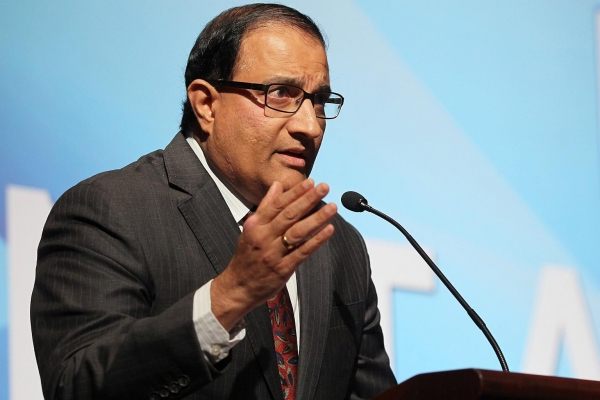Singapore has a strong brand name in Sri Lanka, which is helpful for Singapore businesses looking to enter that market, said Minister for Trade and Industry (Industry) S Iswaran on Wednesday (Jan 24).
But businesses, particularly small and medium enterprises (SMEs), cannot simply rely on brand positioning, and there is a need for them to start differentiating themselves.
“It’s a good starting point, but we have to develop that brand positioning,” he said.
Speaking to reporters on the sidelines of the Sri Lanka-Singapore Business Forum held in Colombo, he noted that the Sri Lanka-Singapore Free Trade Agreement can be used as a starting point to work on “specific sectoral initiatives,” where businesses can work together and see where the opportunities are.
“The fact that there’s a strong brand name for Singapore is very helpful for our SMEs,” he said. “It allows them to get to the table and start negotiations and discussions.”
“But they must then follow that up with capability, whether it’s in terms of products, services or technology which they bring.”
Explaining further, Iswaran said that the challenges Singapore’s SMEs face in Sri Lanka can be characterised as an “uneven terrain”.
“There are some sectors which are doing extremely well and holding their own, and there are others which are keeping up, but finding it challenging,” he explained.
“And then there are some who are facing specific problems which are sector specific.
“Which is why when we use things like our Industry Transformation Maps (ITMs) and other initiatives, it is really to engage at the sector level with the business community, the labour movement, unions and government agencies,” he added.
“Because ultimately the growth has to be underpinned by productivity, otherwise you impair your competitiveness.”
COMMITMENTS SINGAPORE MADE FOR FTA “NO GREATER THAN WHAT IT HAS MADE IN OTHER FTAS”
When asked if there were any trade-offs Singapore had to make in negotiating the Sri Lanka-Singapore Free Trade Agreement, Mr Iswaran said Singapore has been able to gain in areas like government procurement, e-commerce and investment, while Sri Lanka was keen to access not just the Singapore market, but the Southeast Asian region as well.
“I think for Sri Lanka, a major focal point would be how this agreement leads to greater investment flows into Sri Lanka,” he said. “And I think that is why we should look at the FTA not as the end point, but the beginning of the next phase.”
He added that the commitments Singapore made for this FTA are “no greater than what it has made in other FTAs”.
Iswaran also welcomed the official conclusion of negotiations for the new trans-Pacific trade deal.
“It shows that notwithstanding some of the sentiments and rhetoric that we hear, there remain countries that are like-minded in the effort to move forward, in terms of economic integration, because we see the value in benefits to our respective countries, businesses and people,” he said.
“It still has some ways to go, but it’s something that gives us optimism and hope, that there will continue to be momentum in the global economic sphere, in terms of this sort of efforts even when some markets face challenges.”
Source: CNA/ad










